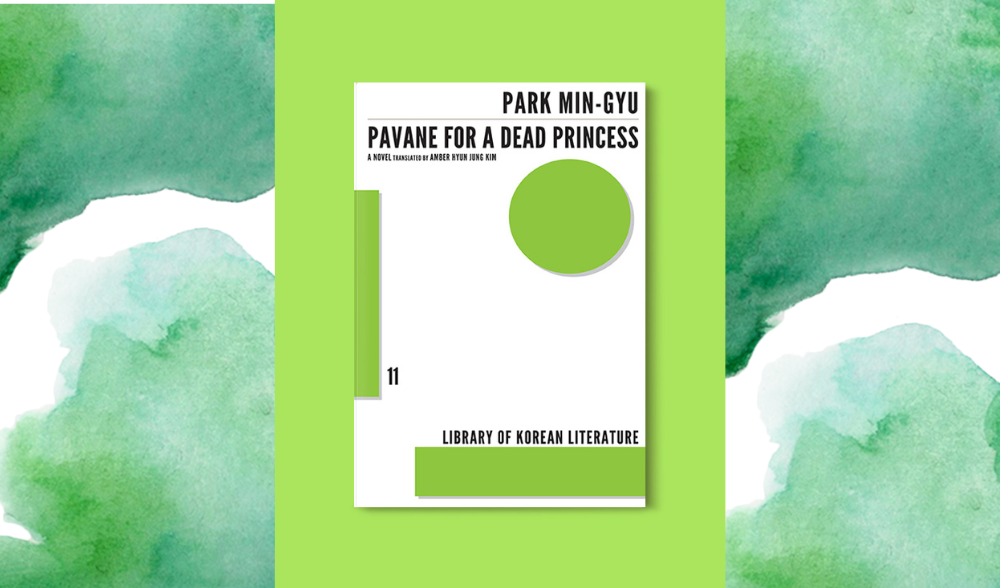BOOK REVIEW EDITOR-IN-CHIEF ELLA KELLEHER WRITES – Beauty is a weapon. In South Korea, widely known as the plastic surgery capital of the world, one finds themselves needing to be armed to the teeth at all times. “Korea is a place where you can’t leave the house without makeup if you’re not beautiful,” which is a particularly pervasive standard for women. Imagine someone who is not beautiful, even considered “ugly” – the “ugliest woman” that anyone had ever seen. Such is the position of the narrator’s main love interest, a girl who is never given a name. Suddenly, a boy with movie-star good looks approaches a girl who has never before been romantically acknowledged. Her thoughts spiral ceaselessly: What if he is not being genuine? Even more terrifyingly, what if he is? In such a savage world, how could the girl ever allow her emotional defenses to falter?
Our narrator is a boy emotionally at sea. Set in 1980s South Korea, the unnamed boy’s conventionally handsome father dumps his average-looking mother for the chance-of-a-lifetime movie role in Seoul and, predictably, a prettier woman costar. Disgusted with his father, the narrator distances himself from his family and takes a job at a department store while he plans to study for college entrance exams. There, he becomes pals with a fellow coworker, an eccentric John Lennon type named Yohan. Working alongside them is the “ugliest girl [he’d] ever seen” and the first and only girl he falls in love with.

Revered South Korean author Park Min-Gyu, known mostly for this book, builds the romantic tension slowly and poetically. Outwardly, the girl is highly wary of the advances of this handsome stranger but simmering in the background is an ever-growing affection and infatuation. Men usually only talk to her on a dare, but with Yohan’s reassurance, the unusual trio become inseparable. Each one is a “freak” by South Korean standards: A college dropout, a hideous girl, and a good-looking boy who dares to be seen with her.
This is not an “ugly duckling” story. Nor is it a gender-swapped retelling of “Beauty and the Beast.” Pavane for a Dead Princess (2014) moves at a slower pace than most romance novels, it takes the time to breathe and let the reader feel the uncertainty and depth of true love. The girl’s ugliness complicates the story. The narrator does not try to deny the fact. He does not claim she had some “inner beauty” that blinds him to her outward appearance. In this respect, Park’s novel is incredibly valuable. The story depicts an admirably realistic and honest depiction of romance and how utterly confusing and unquantifiable it is.
Impeccably translated by Amber Hyun Jung Kim, in this new edition there are moments in Park’s prose that shine a stunning light on the complexity of the human condition. The girl admits that not only is she unattractive on the outside, but she also holds a vicious darkness within her: “Some people might point to handicapped people and tell me things can be much worse. I’m aware there are many people who are in pain… [there] were many times when I envied those people. At least the world recognizes their handicaps for handicaps. The world never accepted my darkness as a handicap, yet everyone treated me as such… [I] had no choice but to live this life. That was my fate.”
What if the pain and the cruelty of a superficial society deepens something in one’s soul? The narrator was left a traumatized man after the betrayal of his father, and the girl was fated from birth to live through hardship. The reader is left wondering why the narrator loves the girl, and the answer arrives in question form, drifting slowly but clearly on the tides of an unlikely relationship: What if there’s an invisible tie between two people, a ‘red string’ that binds two souls together? What if one can love without using eyes or logic – what if one soul simply chooses another?
Pavane for a Dead Princess is a masterclass in poetic writing and an utterly emotionally devastating read necessary for audiences interested in a profound cultural critique of South Korean (and by extent, East Asian) beauty standards. This is a story built for social protest. It urges the reader to see beyond the shallow “judgments laid by society” cemented thousands of years ago. Largely ignored by foreign audiences when it debuted in 2014, Park’s novel deserves a re-read, re-review, and a more nuanced analysis. Park Min-Gyu’s prose guts society, and in the process, leaves indelible emotional marks on the reader as well.

LMU English major graduate Ella Kelleher is the book review editor-in-chief and a contributing staff writer for Asia Media International. She majored in English with a concentration in multi-ethnic literature.

